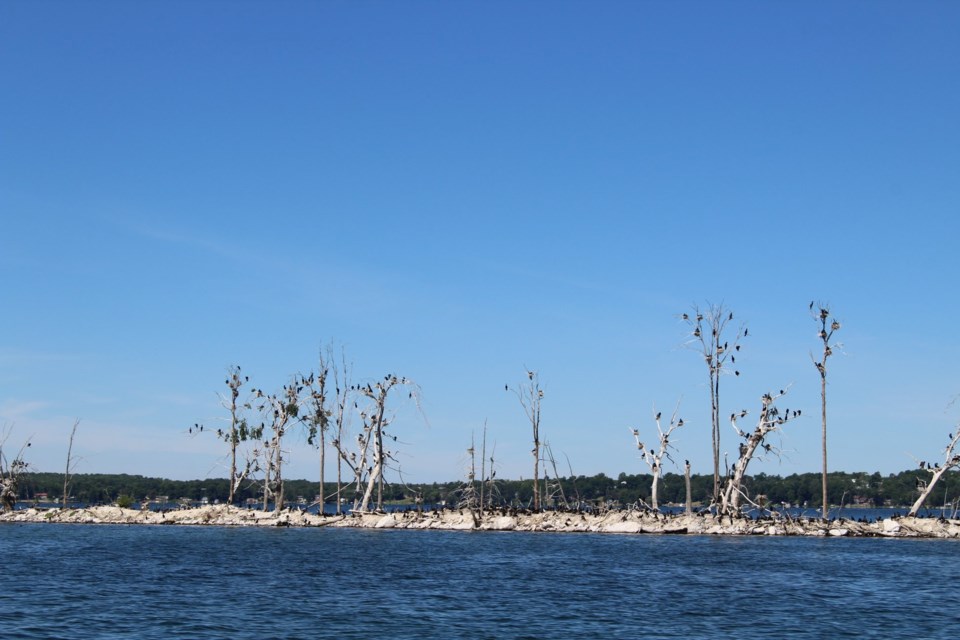The province’s decision to allow the hunting of double-crested cormorants is getting some mixed reviews.
After accepting comments from November 2018 to January 2019 on its proposal to permit hunting, the Ministry of Natural Resources and Forestry recently announced it would allow people to kill 15 cormorants per day — not the 50 it had initially proposed.
Orillia Councillor Ralph Cipolla has been wanting to see the issue addressed since 2003. While running for election that year, he said he heard plenty of complaints from boaters, mainly about the smell the birds create.
“It’s creating havoc on Ship Island,” he said of the strip of land in Lake Couchiching that has been laid to waste by cormorants, “but it’s also polluting our water.”
Cipolla would prefer to see the birds’ eggs oiled to prevent hatching, but he said hunting with a 15-per-day limit is “a good start.”
“I’m not one to see our wildlife killed unless it’s going to be eaten,” he added.
Local naturalist Bob Bowles said he was “disheartened and disappointed” with the ministry’s decision and feels the hunting of cormorants is unnecessary.
“We’ve had increases (in cormorant numbers) before and they tend to balance out over time,” he said. “They were almost wiped out and then they came back.”
He believes “the cormorants are doing us a favour” because the invasive round goby is the birds’ main food source.
“They’re coming back because of the round goby in Lake Simcoe and Lake Couchiching,” he said, adding he has been monitoring cormorant colonies in both lakes. “They have been steadily rising, but the round goby population has been rising, too. If the round goby population falls off, the cormorant population will fall off.”
The birds will eat other fish, but Bowles said those species aren’t plentiful enough to sustain them.
Cormorant hunting season will be open from Sept. 15 to Dec. 31.
The ministry stated, “If hunters choose to not use the birds they harvest, they must dispose of the birds by either:
- delivering it to an approved waste disposal site that permits the disposal of dead animals;
- delivering it to a disposal facility, or using the services of a licensed collector, under the Disposal of Deadstock Regulation (Ontario Regulation 105/09) made under the Food Safety and Quality Act, 2001;
- burying it on private land owned by the hunter, or on private land occupied by the hunter with consent of the land owner.
More information about the hunting of cormorants can be found here.



